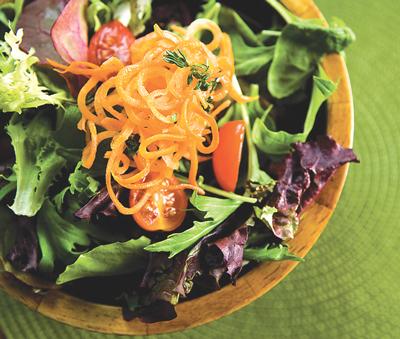Surprising Health Benefits from Spring and Summer Foods
As the days are getting warmer and longer inspiring people to engage in backyard barbecues and midday picnics, Anne-Marie Botek, a writer for agingcare. com, discovered some very interesting information.
Even if your elderly loved one isn’t able to take part in traditions like cookouts, or holiday parties, you can introduce seasonal celebrations into their lives through food. Many popular warm-weather foods even offer the added bonus of helping a senior get the nutrients they need to remain healthy.
Here are some popular spring and summer treats that may offer some unexpected health benefits for you and your elderly loved one. Ruth Frechman, M.A., a registered dietician and spokeswoman for the American Academy of Nutrition and Dietetics, offers her perspective on how these foods can be both tasty and nutritious for seniors.
Barbecue Basics
• Watermelon: Synonymous with summer, this juicy fruit is not only low-fat, it also contains a staggering amount of nutrients seniors need. Pound for pound, watermelon has more lycopene than any other fresh fruit or veggie. Lycopene is an antioxidant that has been shown to combat certain forms of cancer and heart disease. Watermelon is also packed with potassium, which can be a boon for seniors suffering from potassium deficiency, or hypokalemia. According to the National Institutes for Health, hypokalemia in seniors can sometimes be brought on by certain heart failure and blood pressure meds, and can cause problems with heart and muscle function. Watermelon also contains significant amounts of vitamins A, C and B6.
• Iceberg lettuce: Don’t forgo a spring salad just because it has romaine
lettuce in it. Oft-maligned as the less-healthy relative of spinach and romaine
lettuce, iceberg lettuce actually has more of the antioxidant alpha-carotene
than either of them. Alpha-carotene (and its companion, beta-carotene) can
be transformed by the body into vitamin A, which can help maintain good
eye health. Research has shown that alpha-carotene, on its own, may also
play a role in lowering a person’s risk of dying from ailments such as cancer
and cardiovascular disease. Iceberg lettuce also has a good deal of vitamin
K, which can help combat osteoporosis and regulate blood
clotting. Frechman says that, because the amount of alphacarotene
in iceberg lettuce is relatively low compared
to other veggies, so you may want to add some carrots,
tomatoes and spinach to a salad to boost its overall carotene
content.

• Spices: Seasoned sauces and rubs are the cornerstones of a delicious warm weather cook-out. Spices can serve the dual purpose of making food more flavorful to seniors whose ability to taste has been diminished, as well as helping them fight off disease. From tumeric, whose primary compound, curcumin has been shown to be beneficial in fighting off diseases such as Alzheimer’s, Parkinson’s and cancer; to cinnamon, which can help people with Type 2 diabetes by lowering their blood sugar, total cholesterol and triglycerides, spices have numerous potential health benefits.
Enjoying these items may require a bit of effort on the seniors part. If preparing these foods independently is not possible, you might call in a family member or professional care giver to provide assistance.
Photo: Many popular warm-weather foods even offer the added bonus of helping a senior get the nutrients they need to remain healthy.

 How to resolve AdBlock issue?
How to resolve AdBlock issue? 









